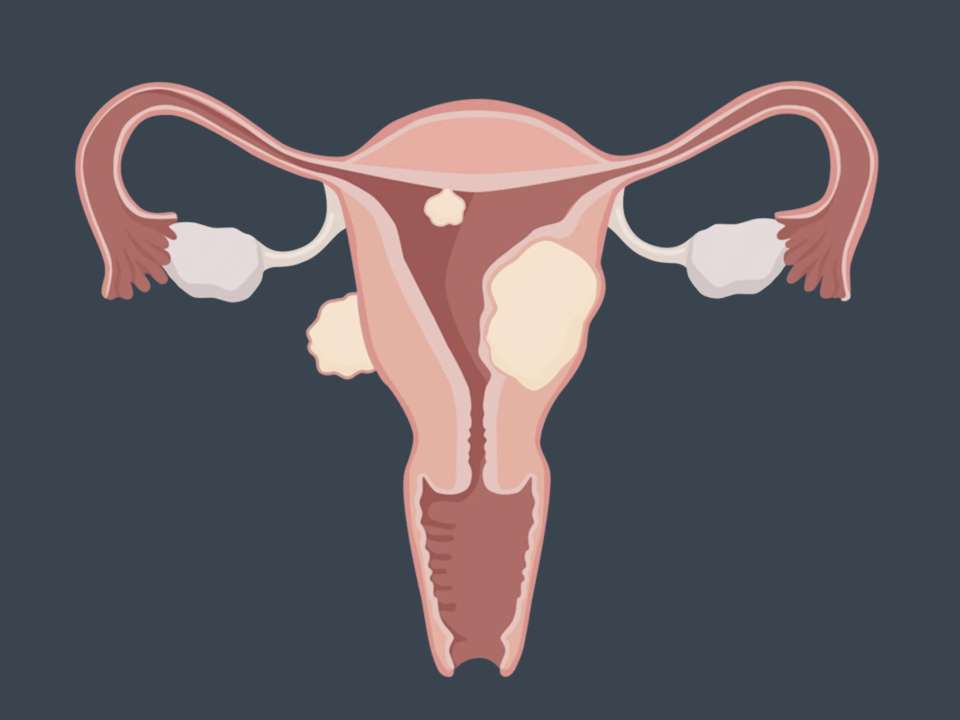
Weight fluctuations. Hot flashes. Difficulty sleeping. While these symptoms may make you think of menopause, they are also indicators of a whole other set of conditions: thyroid problems.
The thyroid is a gland in your neck that produces hormones that control how your body uses energy. Thyroid diseases are common in women — about 1 in 8 women will have thyroid problems — but they are often mistaken for other conditions (and vice versa).
“It can be mistaken both ways. I see patients who will be convinced they have thyroid issues even if they don’t, and at the same time it’s true that thyroid problems tend to get missed because people assume it is menopause or depression,” says Dr. Mayumi Endo, an endocrinologist and director of the Thyroid Nodule Clinic.
So, what are common thyroid problems and how do they overlap with other conditions?
Hyperthyroidism: commonly mistaken for menopause
Hyperthyroidism, or an overactive thyroid, happens when your thyroid produces more thyroid hormone than your body needs. It’s most often caused by Graves’ disease, which is an autoimmune disorder that causes your thyroid to overproduce the thyroid hormone. Toxic nodules, a relatively rare kind of thyroid nodule or lump that overproduces the thyroid hormone, are also a common cause.
“The thyroid hormone is a fight-or-flight hormone that gets secreted when you are running away from a lion or threat. If you have hyperthyroidism, your body thinks you are trying to run away 24/7,” Endo says.
Over time, having your thyroid in perpetual threat-response mode — and thus overproducing the thyroid hormone — wreaks havoc on your body. However, these symptoms are similar to menopause, which is why it’s easy to confuse the two.
Signs of hyperthyroidism include an increase in appetite, feelings of anxiety, weight loss, increased heart rate, difficulty sleeping (you don’t want to sleep when running from a lion, Endo notes), and sweating and feeling hot easily (one of the main reasons hyperthyroidism can be mistaken for menopause).
Hypothyroidism: commonly mistaken for perimenopause and menopause
Hypothyroidism, or an underactive thyroid, is when your body doesn’t produce enough thyroid hormone.
If hyperthyroidism is your body prepping you to run from a lion, then hypothyroidism is your body prepping you for hibernation.
“Everything slows down: your gut, your energy. Think about a bear in hibernation trying to conserve energy for the winter,” Endo explains.
Hypothyroidism is most often caused by Hashimoto thyroiditis, which is the most common autoimmune disease in the world. In Hashimoto thyroiditis, the immune system attacks the thyroid, destroying its hormone-producing cells. Endo says some types of chemotherapy, thyroid surgery and inflammation can also cause hypothyroidism.
Signs of hypothyroidism include feeling cold, weight gain, constipation, fatigue/tiredness, depression, and brittle hair and nails — which are also common symptoms of both perimenopause and menopause.
Postpartum thyroiditis: commonly mistaken for baby blues
A more specific thyroid disease is postpartum thyroiditis, which, as the name suggests, occurs after you’ve given birth.
Your thyroid has two roles: it’s a factory to produce the thyroid hormone and a storage unit to, well, store it. Postpartum thyroiditis occurs when your immune cells are overactivated after pregnancy, attack your thyroid and breach that storage unit.
“What happens is all the hormone in the thyroid storage unit spills out and gushes into the bloodstream,” Endo says.
As a result of the hormone influx, you can experience symptoms of hyperthyroidism. These signs of postpartum thyroiditis include anxiousness or depression and exhaustion/fatigue after giving birth.
“In the first three months after pregnancy, these conditions often get mixed up because new moms are sleep deprived and feel jittery and anxious, and it’s assumed to be postpartum depression. Postpartum thyroiditis often gets missed,” Endo says.
For some folks, after the initial wave of thyroid hormone subsides, there is nothing left in their thyroid storage unit. This, combined with slower thyroid hormone production, can lead to hypothyroidism.
“In a classical presentation, the thyroid hormone production stops and goes down from there, with 50% of folks returning to a normal state in one year, but unfortunately, 50% having hypothyroidism permanently,” Endo says.
This means symptoms of postpartum thyroiditis also include those of hypothyroidism, like weight gain, fatigue, depression and anxiety.
Thyroid nodule or thyroid goiter: commonly mistaken for cancer
Thyroid nodules and goiters are lumps in your thyroid, which appear as swelling in your neck. For many people, having a lump in their neck triggers warning bells of cancer, but the good news is most of the time a thyroid nodule or goiter is not cancerous.
“A thyroid nodule itself is common. However, of all the thyroid nodules, only 5% get diagnosed as thyroid cancer,” Endo says.
In other words, while the lump can be cancerous (and you should check in with your doctor), most of the time it’s a false alarm. In fact, most nodules and goiters are asymptomatic.
How to determine if you have a thyroid disease instead of menopause or mental health problems?
With so much overlap in symptoms, it makes sense that people mistake thyroid problems for other conditions.
If you do have a thyroid problem, your doctor will prescribe medication to stabilize your thyroid hormone levels or treat the condition with therapy, like methimazole for hyperthyroidism. And if it turns out you are dealing with menopause symptoms or mental health problems, treatment is available for you, too.
In any case, the key to getting help is knowing what problem you’re dealing with. Luckily, a simple blood test can determine if you have an over- or underactive thyroid, and a thyroid biopsy can determine if a thyroid nodule is cancerous.
So, if you’re feeling uncertain about your symptoms, there’s an easy solution to get clarity: chat with your doctor.
“It’s always appropriate to seek medical attention and get a proper test done,” Endo says. “Seek medical attention so a professional can assess your risk, provide treatment and give you peace of mind.”

 Healthy ideas for your inbox
Healthy ideas for your inbox





